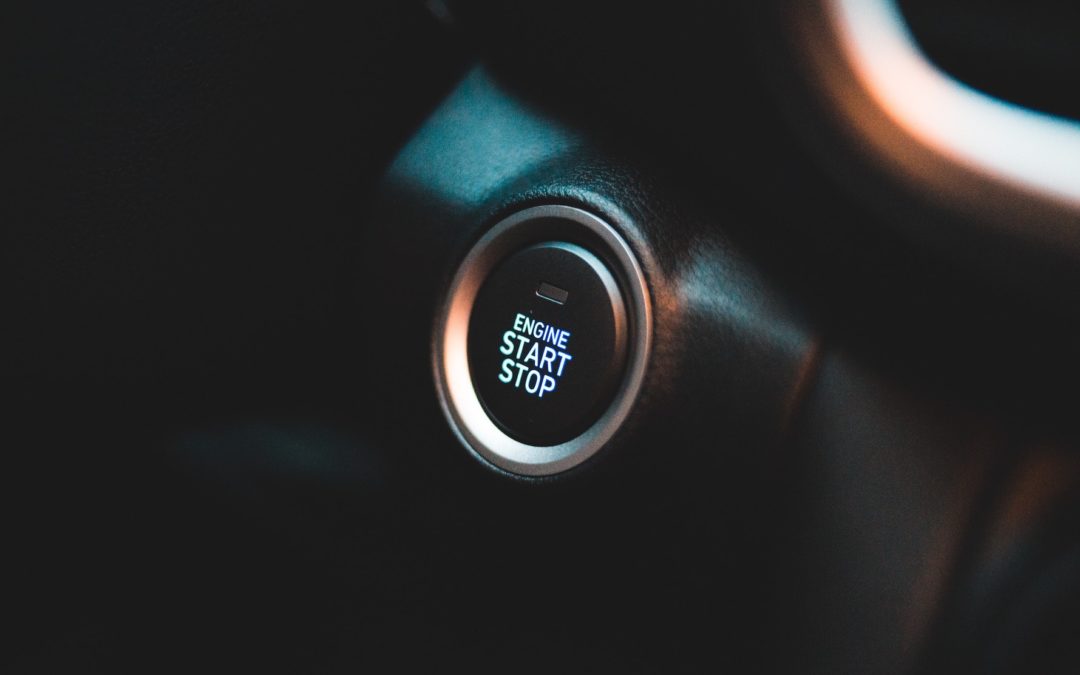Have you ever experienced a time when your vehicle would not start? You pushed the ignition button, or turned the key and nothing? After you get through the dread in that situation, the question that should run through your mind next: Is it the battery? The starter? The alternator?
In this month’s blog, we review what could be happening when your vehicle will not start, and where the problem may lie within your vehicle’s electrical system.
Is it the battery?
Your most obvious assumption when the vehicle will not start is the battery. Afterall, the battery is responsible for sending the initial electrical current that powers the starter motor. Your vehicle’s battery also acts as a type of surge protector for any computer systems within your vehicle.
Even the best of batteries only has a lifespan of about five years. Batteries lose their charge over time, and so that is typically what causes them to fail.
The longevity of a battery is dependent on several factors including where you live and your level of battery maintenance. Seaside locales tend to speed up the corrosion due to salt in the air. Battery maintenance includes ensuring that the cables are properly connected and free of corrosion. Simple maintenance involves a toothbrush, water, baking soda, and a little elbow grease.
When you try to start the vehicle, and you hear a low, whining sound, this may signal that there is a problem with the battery. However, the true test comes when you re-charge the battery through jumper cables. When your vehicle will not start, contact a roadside service, or ask a friend to help you by providing a jump.
- Once the vehicle has been running for several minutes with the jumper cables still attached, the battery should be recharged.
- If the vehicle will not start again after removing the battery cables, there’s an issue with the battery.
- Most roadside services can use a device to check if the battery is holding the charge and tell you if it needs replacement.
- The good news is that most roadside services carry batteries with them, so they can do an on-the-spot replacement.
Is it the starter?
Your vehicle’s starter is what receives the current from the battery, and through a motor, engages with the engine (gear and flywheel) to start the engine. The starter facilitates the beginning of the internal combustion process in the engine.
Vehicle starters usually fail because of wear, tear, or internal defects. The starter is a motor, and the motor may burn out from overuse or wear. The motor in the starter may also fail in its connection to the flywheel, making it unable to engage the flywheel to begin the ignition process.
- If the starter is the culprit, you may hear a clicking sound when you push the ignition or turn the key.
- If you don’t hear anything, it could still be the starter, but it could also be the battery. That’s when it’s time to consult with a service professional.
- If your starter is on the road to failure, you may notice your dashboard lights dim or flicker when you start the vehicle. This is a sign that it may be having difficulty in the ignition process.
Is it the alternator?
The final suspect in a vehicle that will not start is the alternator. The alternator is the component of the electrical system that powers all your cabin functions – like the lighting, radio, etc. The other main function of the alternator is to recharge the battery. Each time your battery sends an electrical current to the starter, it loses its charge. The alternator replenishes the charge while the vehicle is in operation. The alternator recharges the battery by converting mechanical energy into electrical energy and produces the AC current to assist the battery.
Unlike the battery, alternators typically last a lot longer. However, they may still be the victim of defects or impacted by other components, such as wiring or fuse issues.
- A faulty alternator is usually signaled to the driver on the dashboard battery warning light.
- You may also notice your dashboard lights dimming when the vehicle is idling but grow bright when you rev the engine.
If you recently experienced an issue starting your vehicle, or need assistance, contact the service professionals at Campus Repair. We can conduct a series of diagnostics to pinpoint the problem and make the necessary repairs or replacements to keep your vehicle starting the first time and keep you on the road.

